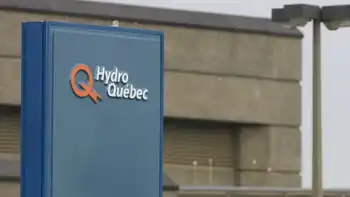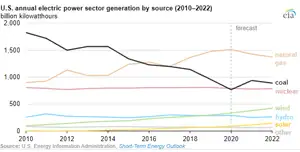Fill up is free if you drive a hybrid
By The Oregonian
Protective Relay Training - Basic
Our customized live online or in‑person group training can be delivered to your staff at your location.

- Live Online
- 12 hours Instructor-led
- Group Training Available
How about free - from drive-up stations across the metro area?
That's the strategy Portland General Electric Co. launched when it unveiled the first of a dozen plug-in vehicle-charging stations it will install through September. The utility hopes the stations - a bit taller than Portland's electronic parking meters, with a sleek blue and silver design - will encourage ownership of plug-in electric vehicles by offering visibility, convenience - and a hard-to-beat price. The free test period will continue for an undetermined time.
"It's what we want to call the filling station of the future," said Bill Nicholson, vice president of customers and economic development for PGE.
PGE and several major automakers are gearing up for what they consider the next generation of cars: gas-electric hybrids with plug-ins to use electricity to reduce gas consumption and greenhouse gas emissions. They think Portland, which has the nation's highest ownership rate for the standard Toyota Prius hybrid, could be at the vanguard.
"Wouldn't it be great to charge up your battery while you're shopping or visiting OMSI, so the gas motor barely has to fire up?" Nicholson said. "That's the concept with this next-generation car."
But why go for a plug-in hybrid when 100 percent electric cars have been around for more than a decade? Because, industry observers say, such cars so far suffer from federal speed limits of 25 mph, high prices and technology glitches.
Gas-electric hybrids such as the Prius have caught on nationwide, offering performance and reliability comparable to that of standard gas-powered passenger cars. Fuel economy of up to 60 miles per gallon has drawn flocks of consumers, especially amid rising gasoline prices.
Only 268 all-electric passenger cars are registered in Oregon, state transportation officials say. But the state has 26,338 registered hybrids - still shy of 1 percent of the state's 3.3 million passenger cars.
Advocates of plug-in technology say a hybrid with a plug could be better than a standard hybrid. The plug-in cars could get better mileage - perhaps 100 miles or more a gallon. Consumers also may like knowing they can recharge with any standard 110-volt household electrical outlet and still have gas as backup power.
"When you're all-electric, you're very reliant on how far your car can go," said Elizabeth Paul, project manager for PGE.
That makes the availability of electricity on the road a crucial consideration, Paul added.
PGE unveiled the first in its new fleet of charging stations Tuesday at its headquarters downtown. The company has offered a nondescript electrical outlet there since 1996; the new station comes with an 8-foot-tall stainless-steel design that will be replicated across the area. Shorepower Technologies, a startup with West Coast operations based in Portland, built the stations.
The stations cost about $2,000 each, and companies that host stations pay for equipment, any underground utility extensions - and the power bill for car users. Charging up a test Toyota model takes about three hours with a 110-volt outlet and uses as much electricity as running a large microwave for three hours. The stations offer 220-volt plugs that charge faster.
PGE passes all costs on to the stations' host companies and buys renewable energy credits so that the stations sell power generated from wind, solar or hydroelectric sources, not coal. Even under those terms, local business interest in the project has been "overwhelming," said PGE's Nicholson, as companies look for a visible way to show a green ethic.
In coming years, PGE envisions charging electric cars, and potentially giving users discounts for those who charge during off-peak hours.
PGE touted its plans by presenting a test model of a plug-in hybrid Toyota Prius, one of only five in the nation.
In 2010, Toyota plans to sell a demonstration plug-in Prius to commercial fleets, said Chris Hostetter, group vice president with Toyota Motor Sales U.S.A. Inc. Using a lithium-ion battery, the model could travel up to 10 miles at speeds up to 60 mph, all while using no gasoline.
With battery packs costing about $500 per mile of travel capacity, a 10-mile range could add about $5,000 to the cost of a Prius, Hostetter said.
"That's what we're researching now: How many miles do people really drive all electric?" he said. "How much convenience do they want? Do they want to go more miles with less trunk space but pay more?"











